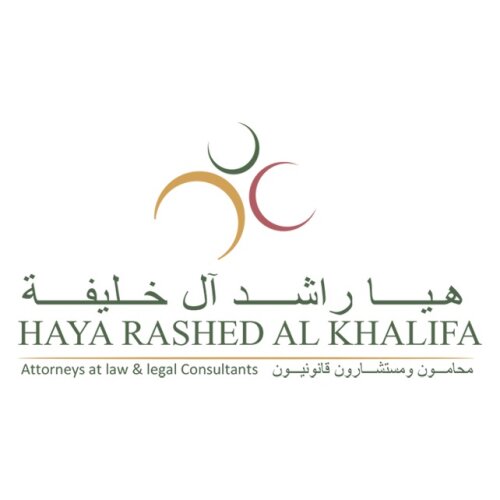Best Debt & Collection Lawyers in Bahrain
Share your needs with us, get contacted by law firms.
Free. Takes 2 min.
Or refine your search by selecting a city:
List of the best lawyers in Bahrain
About Debt & Collection Law in Bahrain
Debt and collection law in Bahrain covers the legal processes involved in the collection of debts and the rights and responsibilities of creditors and debtors. Bahrain’s legal framework provides mechanisms for creditors to recover debts through civil action, while also protecting debtors from unfair practices. With an ever-evolving financial landscape, it is crucial to understand both the rights and obligations of all parties involved in debt collection in Bahrain.
Why You May Need a Lawyer
Engaging a lawyer skilled in Bahraini debt and collection laws can be extremely beneficial in several situations:
1. **Contractual Disputes**: If you are experiencing a dispute regarding the terms of a debt agreement, a lawyer can help interpret the contract and represent your interests.
2. **Debt Recovery**: Creditors often need legal assistance to effectively pursue debt collection, ensuring compliance with Bahraini laws and maximizing the potential for recovery.
3. **Defense Against Unfair Collection Practices**: If you are a debtor facing aggressive or illegal collection practices, a lawyer can help protect your rights and negotiate with creditors.
4. **Bankruptcy**: Individuals or businesses considering bankruptcy can benefit from legal advice to navigate the complexities of the Bahraini bankruptcy process.
5. **Cross-Border Debt Issues**: Due to Bahrain’s position as a regional hub, many debt issues involve foreign creditors or debtors, necessitating specialized legal advice.
Local Laws Overview
The legal landscape in Bahrain for debt and collection is governed by both civil and Sharia law, with the Commercial Law (Decree No. 7 of 1987) playing a key role. Critical legal elements include:
1. **Bonded Debts**: Legal provisions allow creditors to seek judicial enforcement for bonded obligations.
2. **Claims Submission**: The Bahrain Chamber for Dispute Resolution provides a streamlined mechanism for the filing of debt claims.
3. **Court Procedures**: The Civil and Commercial Procedures Law outlines the processes for litigation in debt recovery cases.
4. **Alternative Dispute Resolution**: There is growing encouragement for arbitration and mediation as means to resolve debt disputes amicably.
5. **Bankruptcy Law**: The Bankruptcy Law (Law No. 22 of 2018) outlines procedures for financial restructuring and insolvency, balancing the interests of both creditors and debtors.
Frequently Asked Questions
1. What are the options available for debt recovery in Bahrain?
Creditors can pursue litigation through the courts or opt for arbitration and mediation for a more collaborative approach.
2. Can a debtor be subjected to imprisonment in Bahrain for non-payment of debt?
While imprisonment for debt is generally prohibited, there can be legal consequences for fraudulent activities or deliberate evasion.
3. How long does it typically take to resolve a debt claim in Bahrain?
Resolution times vary depending on the complexity of the case and whether it is settled through court or alternative dispute methods.
4. What legal protections exist for consumers against unfair debt collection practices?
Bahrain’s legal system prohibits harassment and unfair practices, offering recourse through civil courts.
5. How can businesses manage overdue payments effectively?
Implementing clear credit policies and engaging legal professionals early can aid in managing and recovering overdue debts.
6. Is there a statute of limitations on debt collection in Bahrain?
Yes, debts generally have a limitation period after which legal enforcement may no longer be possible. This varies by the type of contract and debt involved.
7. Can interest be charged on overdue debts?
Bahraini law allows for the charging of interest, but this must be explicitly agreed upon in the contract and should not exceed legal limits.
8. What steps should be taken if served with a debt collection notice?
Consult a lawyer to review the notice and your obligations, to ensure compliance or to challenge any inaccuracies.
9. Can foreigners enforce a debt judgment from another country in Bahrain?
Foreign judgments can be enforced in Bahrain, subject to certain conditions and reciprocity agreements.
10. How does Bahrain's bankruptcy process work?
The Bankruptcy Law provides a framework for debt negotiation and settlement, potentially leading to corporate restructuring or liquidation.
Additional Resources
For further information and assistance regarding debt and collection in Bahrain, consider the following resources:
- The Bahrain Chamber for Dispute Resolution
- The Ministry of Justice and Islamic Affairs
- Local legal firms with expertise in commercial and debt law
Next Steps
If you require legal assistance in the area of debt and collection, it is advisable to:
1. **Consult with a Legal Expert**: Begin by consulting a lawyer who specializes in Bahraini debt and collection law.
2. **Gather Documentation**: Compile all relevant documents relating to the debt, including contracts, correspondence, and payment records.
3. **Evaluate your Options**: Discuss with your lawyer the potential legal strategies that align with your desired outcomes.
4. **Engage in Negotiation or Litigation**: Depending on the case specifics, your lawyer will guide you through negotiating a settlement or pursuing formal legal action.
5. **Stay Informed**: Ensure you are updated on the legal proceedings and actively participate in decision-making throughout the process.
Lawzana helps you find the best lawyers and law firms in Bahrain through a curated and pre-screened list of qualified legal professionals. Our platform offers rankings and detailed profiles of attorneys and law firms, allowing you to compare based on practice areas, including Debt & Collection, experience, and client feedback.
Each profile includes a description of the firm's areas of practice, client reviews, team members and partners, year of establishment, spoken languages, office locations, contact information, social media presence, and any published articles or resources. Most firms on our platform speak English and are experienced in both local and international legal matters.
Get a quote from top-rated law firms in Bahrain — quickly, securely, and without unnecessary hassle.
Disclaimer:
The information provided on this page is for general informational purposes only and does not constitute legal advice. While we strive to ensure the accuracy and relevance of the content, legal information may change over time, and interpretations of the law can vary. You should always consult with a qualified legal professional for advice specific to your situation.
We disclaim all liability for actions taken or not taken based on the content of this page. If you believe any information is incorrect or outdated, please contact us, and we will review and update it where appropriate.
Browse debt & collection law firms by city in Bahrain
Refine your search by selecting a city.











